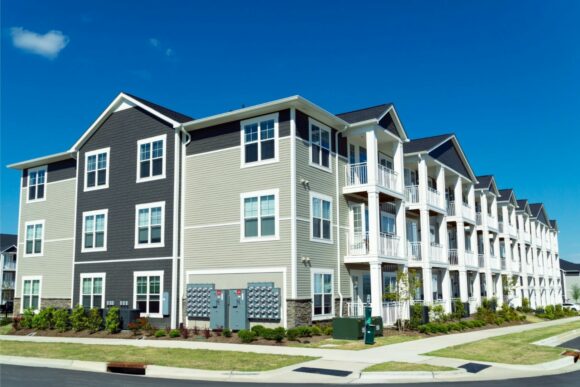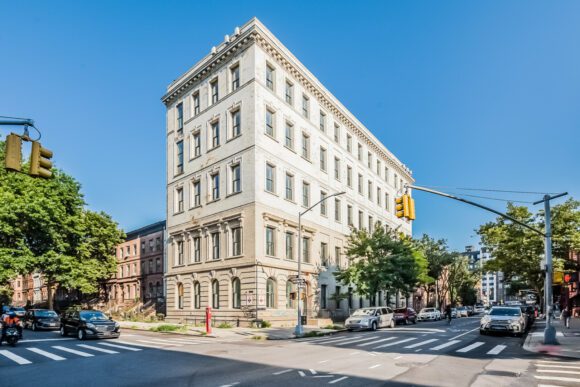It’s Back…MHDC Reinstates the Missouri Low Income Housing Tax Credit Program!
By Melanie Beckman
Since its inception, the Missouri Low Income Housing Tax Credit (LIHTC) program has provided quality affordable homes across the state to low income families, seniors, veterans, disabled and special needs individuals. With a new facelift, the program has been reinstated by the Missouri Housing Development Commission (MHDC) after nearly a three-year hiatus. Under the direction of former Governor Eric Greitens, the state LIHTC program was ended in an effort to curtail tax credit programs and the special interest groups that supported them. Greitens’ move to end the program was viewed as a political maneuver rather than one based on factual information. Since Greitens’ resignation in June 2018, newly appointed Governor Parson, the MHDC and other key members of Missouri’s legislative houses have been pushing for the reinstatement of the State LIHTC program, albeit with a few alterations to make the program more effective for Missouri taxpayers.
Background & Former Program
The Missouri LIHTC program started in 1990 under Section 135.350 to 135.363 RSMo. Devised to supplement the federal LIHTC program, which was enacted in 1986, the state program gave MHDC the ability to allocate state credits to match the annual federal allotment. The program began by allocating these state tax credits to projects equal to 20% of the federal total. In 1994, the number of state credits allocated increased up to 40% of the federal credit total, primarily to assist areas that lost housing in the 1993 flood. Beginning in 1997 and through 2018, the state credit was increased up to 100% of the federal credit for all areas.
Developers of a qualifying project to which the federal credit is allocated by MHDC through a selection criteria established by the Qualified Allocation Plan (QAP) receive a federal credit equal to 9% of the qualified basis of the project for ten years. For projects financed with tax-exempt bonds, the federal tax credit is reduced to equal 4% of the qualified basis. Projects seeking 9% credits are awarded on a competitive basis, as compared to projects seeking 4% credits, which are awarded based on the availability of tax-exempt bond financing. The credit is limited to a percentage of the qualified basis, based upon a depreciable basis, and the percentage of affordable units in the development. The minimum number of qualifying units is (1) 40% of the total number of units affordable to persons at 60% of the median income or (2) 20% affordable to persons at 50% of the median income, as stated in a report from the Missouri State Auditor’s Office.
The MHDC is responsible for the allocation of federal and state credits and assuring compliance with the regulations. The compliance process includes periodic physical inspections of the property, annual audits, as well as reviews of management and occupancy procedures during a minimum 15-year compliance period. The Missouri LIHTC is an allocable credit, meaning that transferability of the credit is completed by subscribing to the fund level partnership and receiving a K-1. Section 135.352 RSMo allows the credits to be carried back three years to offset prior tax liability or carried forward for five years to offset future tax liability. In addition, the tax credits may be redeemed against state income tax, corporate franchise tax, financial institution tax or insurance company premium tax.
The New Program
Over the past three years, key Missouri legislators have been brainstorming ideas on how to revise the old state LIHTC program in order to reduce the fiscal burden of the program without jeopardizing much- needed housing. What came out of those discussions are three main changes to the former QAP.
First, the statewide credit match was reduced from up to 100% of the available and authorized allocated federal LIHTC to an amount up to 70% for 9% deals. Deals utilizing tax-exempt bonds for financing or “4% deals” have a ceiling cap of $3M per year. The amount of state LIHTCs approved for a development cannot exceed the Federal LIHTC amount authorized and is based on the financial feasibility needs analysis of the development by the MHDC.
Second, the MHDC is rolling out a credit redemption pilot program for the 2020 QAP applications, which are due October 30th. As per the QAP revisions from the MHDC, developers can submit their application under the standard redemption method and/or under the accelerated redemption method. Only 20% of the deals awarded credits will be under the accelerated method. What does this mean? Under the accelerated method, the state credit will match the federal credit during the first five years. The remaining allocated credits will be evenly spread across the last five-year credit period. In other words, more credits will be issued during the credit’s most valuable years. The Commission believes this will increase credit pricing, generating additional equity, and facilitating the construction of additional units.
Lastly, in order to establish a more even playing field and provide transparency as to why projects are selected and receive allocations, the MHDC has revised the scoring rubric’s “Credit Efficiency” criterion. Applications will be divided into four categories: (1) Family New Construction; (2) Senior New Construction; (3) Family Rehab; and (4) Senior Rehab. The average eligible LIHTC amount per LIHTC bedroom will be based on data from 2020 submitted applications, and a “safe harbor” will be set in place for each category at 2.5% above and 2.5% below the average for each respective category.
Benefits to Missouri Residents
Over 117,000 low income households in Missouri are without access to affordable rental housing, as reported by the National Low Income Housing Coalition. Of this figure, 80% are working residents whose income is below the poverty guidelines, seniors and the disabled. A program like the Missouri LIHTC program provides more options and security for our residents by decreasing poverty, increasing overall community health, spurring economic investment and job creation, providing access to better education, along with giving Missourians a chance for a better life.
About Monarch Private Capital
Monarch Private Capital manages ESG funds that positively impact communities by creating clean power, jobs, and homes. The funds provide predictable returns through the generation of federal and state tax credits. The Company offers innovative tax credit equity investments for affordable housing, historic rehabilitations, renewable energy, film, and other qualified projects. Monarch Private Capital has long-term relationships with institutional and individual investors, developers, and lenders that participate in these types of federal and state programs. Headquartered in Atlanta, Monarch has offices and tax credit professionals located throughout the U.S.
Related Posts

Monarch Private Capital Closes LIHTC Equity Financing for Walnut Street Phase I in Massachusetts
Mar 26, 2025
$43 Million Project to Deliver Affordable Housing for Massachusetts Communities ATLANTA, March 26, 2025 (GLOBE NEWSWIRE) – Monarch Private Capital, a nationally recognized impact investment firm that develops, finances, and manages […]

Monarch Private Capital Celebrates Nearly 100 Investments Transforming South Carolina Communities
Dec 5, 2024
ATLANTA, December 5, 2024 (GLOBE NEWSWIRE) – Monarch Private Capital (Monarch), a nationally recognized impact investment firm that develops, finances and manages a diversified portfolio of projects generating both federal […]

Monarch Private Capital Finances Historic Rehabilitation of New York and New Jersey Telephone Exchange Building
Oct 10, 2024
$59 Million Redevelopment Will Restore Brooklyn Landmark and Offer Luxury Housing by 2026 ATLANTA (GLOBE NEWSWIRE) – Monarch Private Capital (Monarch), a nationally recognized impact investment firm that develops, finances, […]